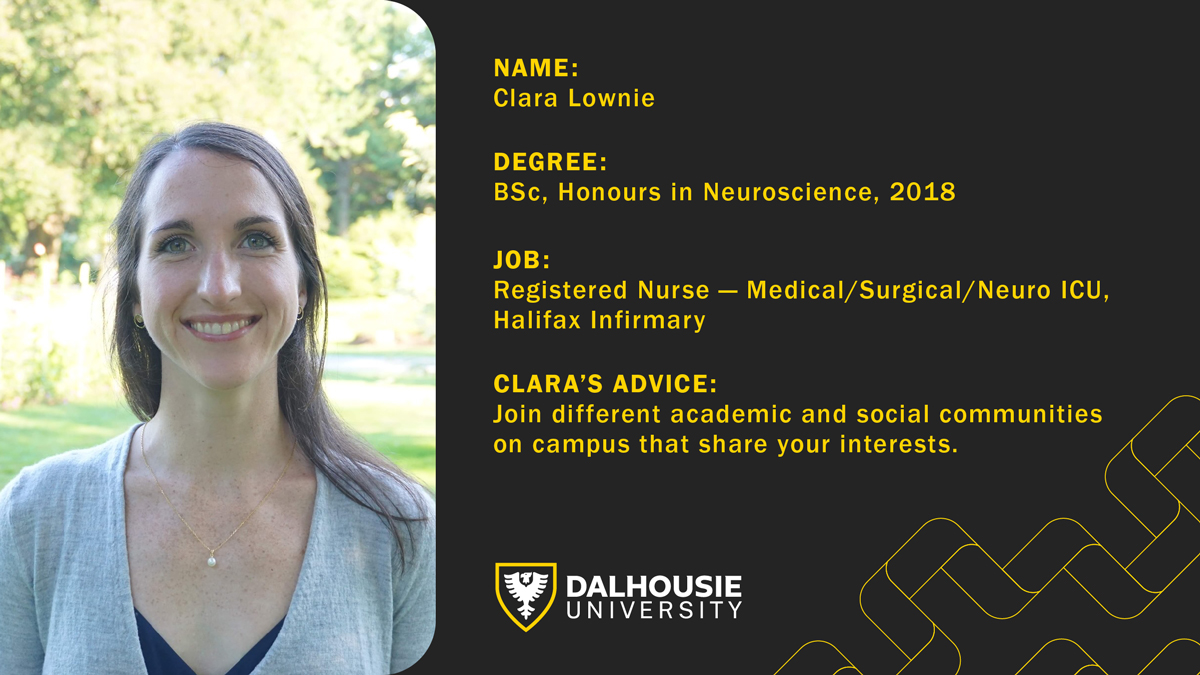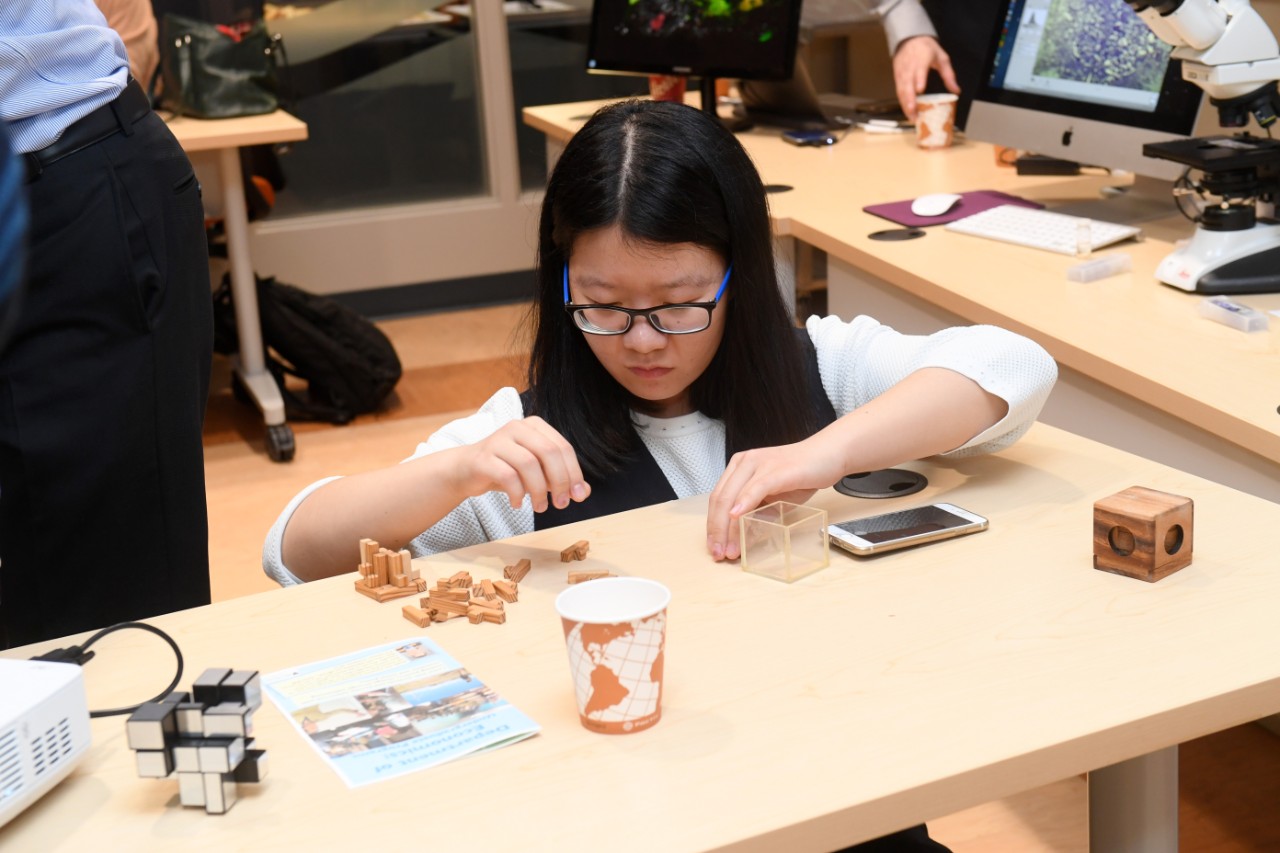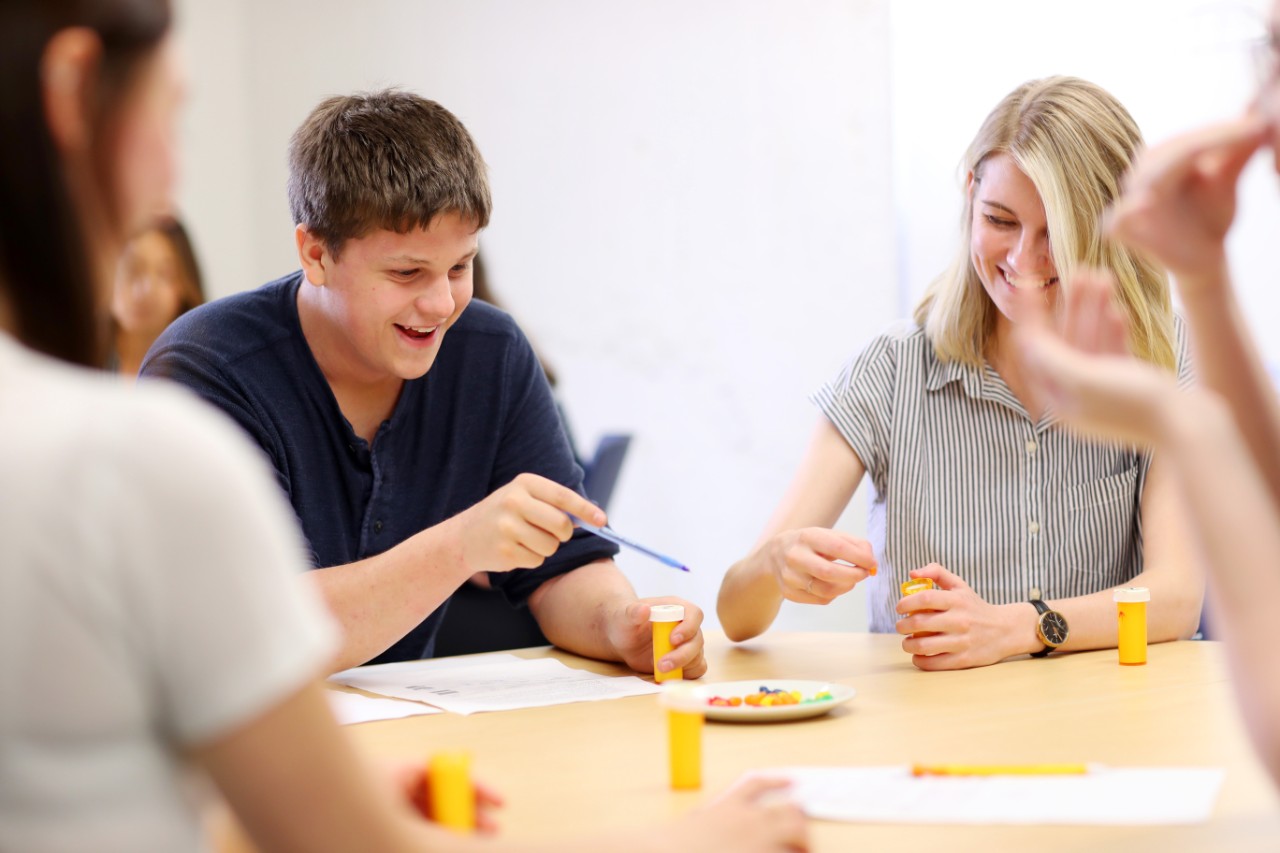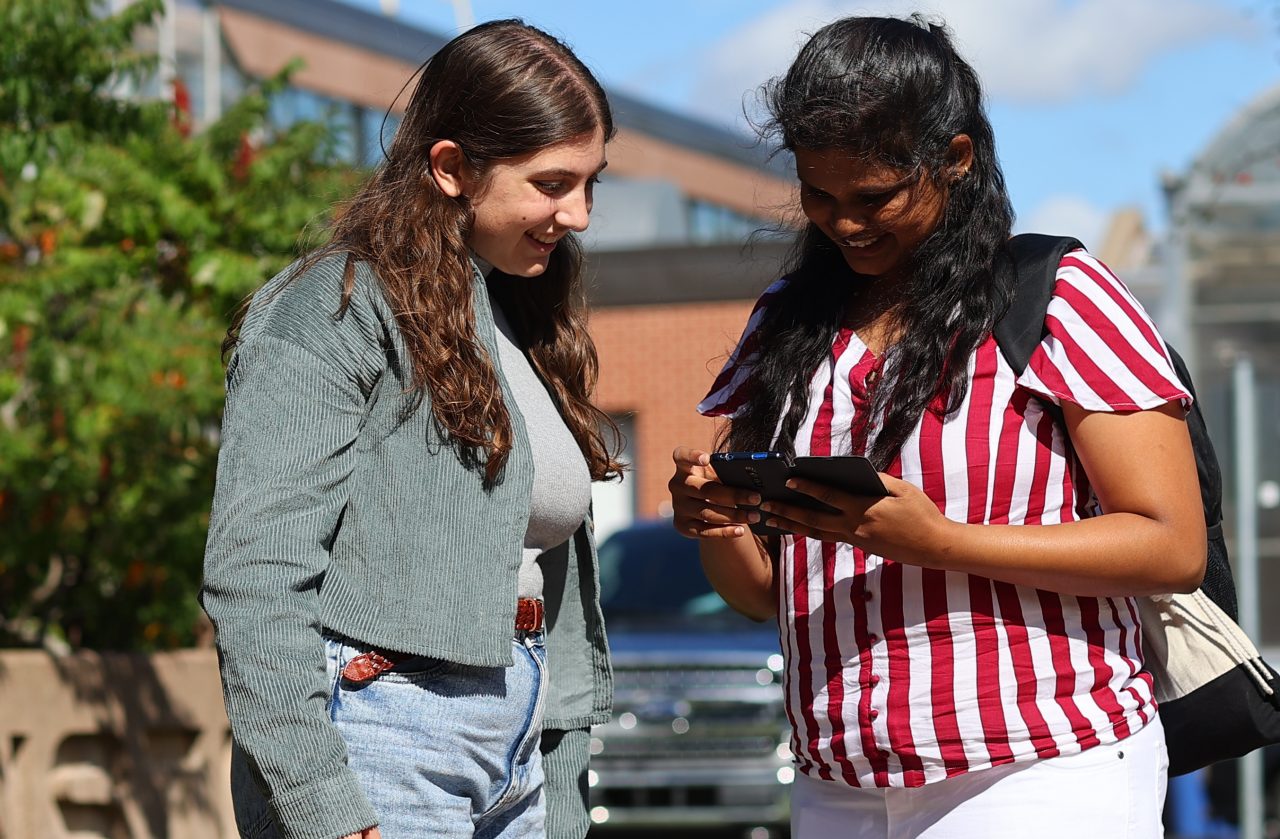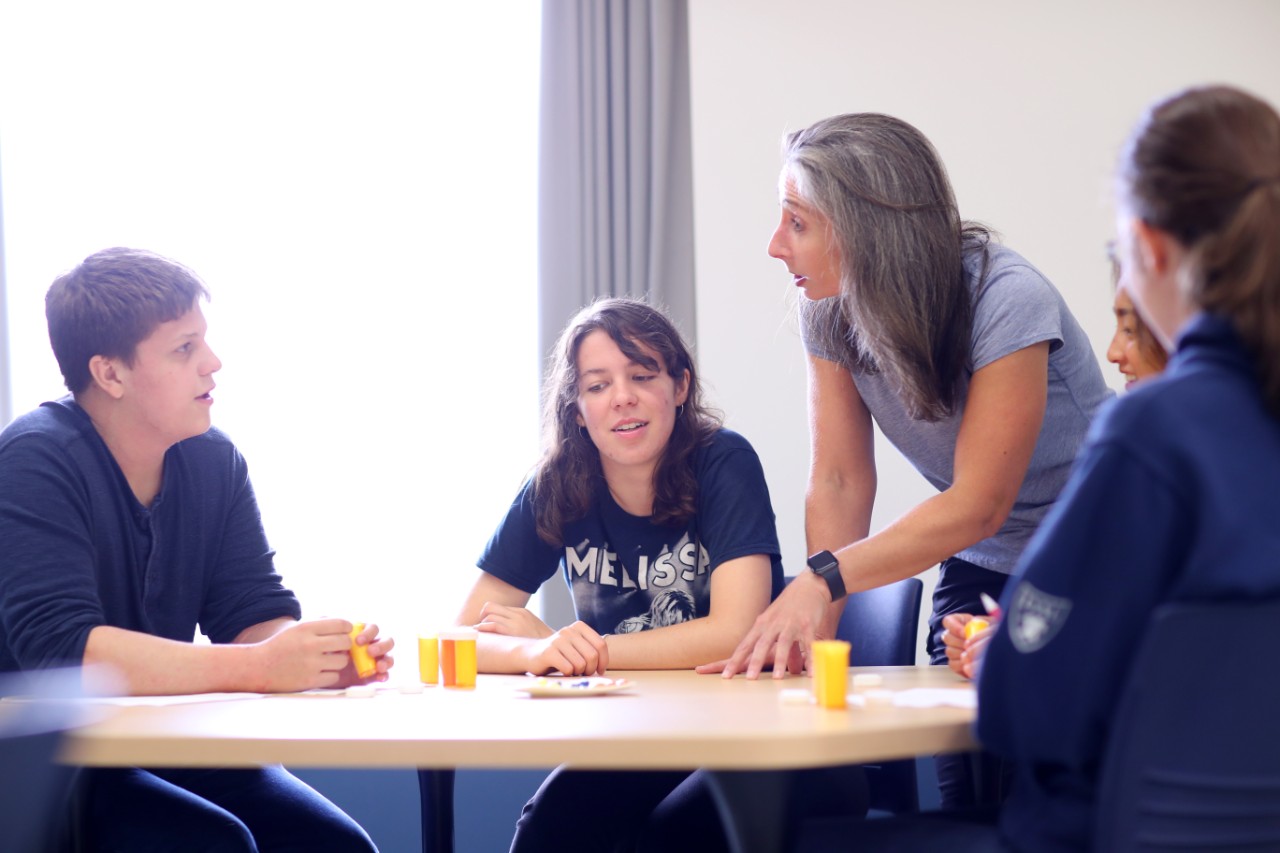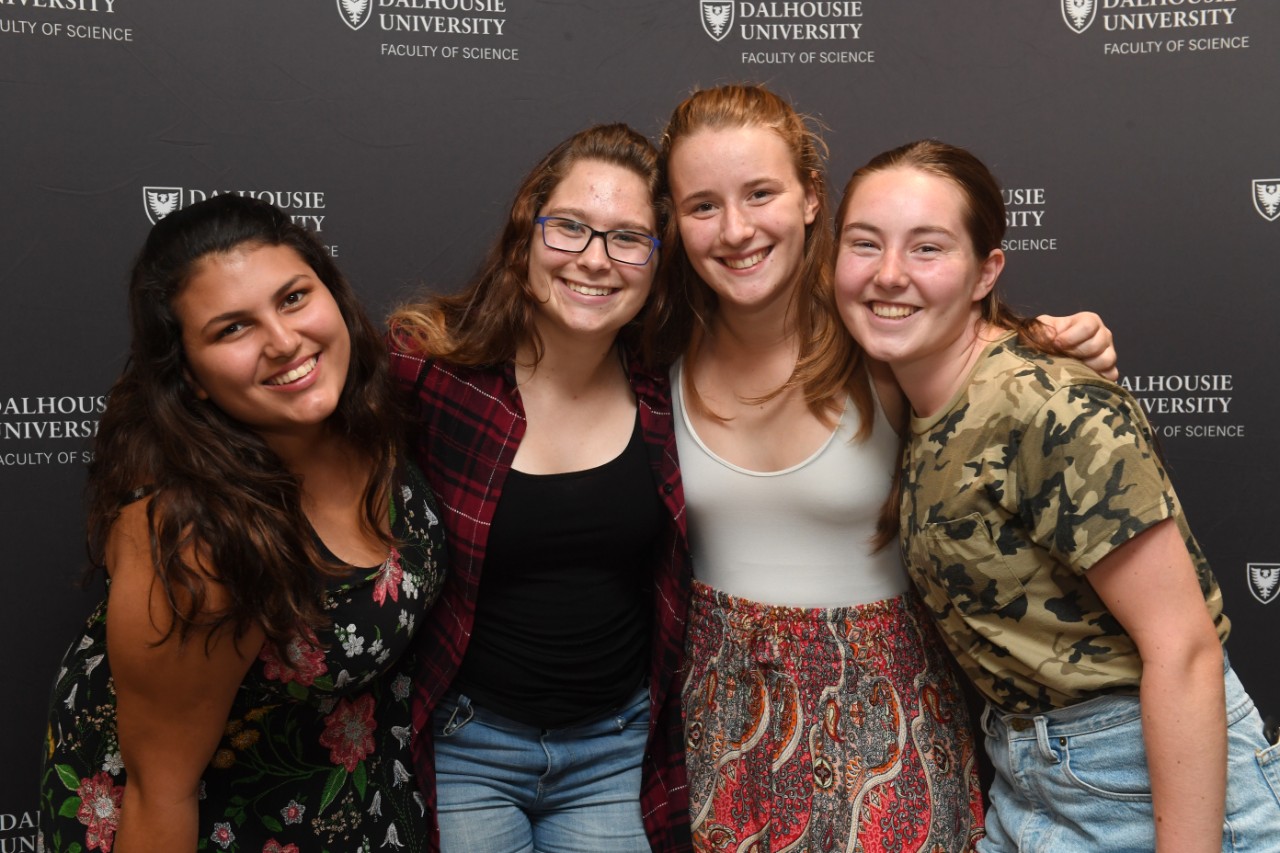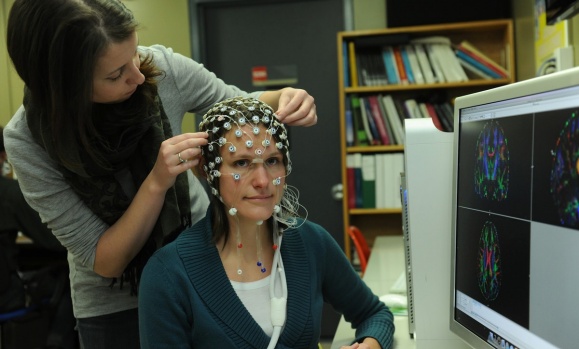Neuroscience
Dalhousie University's Department of Psychology and Neuroscience is the most distinguished in the Atlantic provinces, offering majors in both Neuroscience and Psychology with courses taught by award-winning faculty. Complete your undergraduate degree as a major, or consider completing an honours degree and/or earning one or more certificates if certain courses are taken as part of the program.
Your major map: Neuroscience
The Neuroscience Major Map highlights academic and co-curricular opportunities and provides an overview of how students can optimize their degree. Students are encouraged to connect with advising supports at Dalhousie and use the Academic Calendar and Timetable to create their course plan.
< 30 CREDIT HOURS/FIRST YEAR
- Complete required introductory courses in Psychology and Neuroscience: PSYO 1011/1012 (or PSYO 1031/1032, their online equivalents), and courses in other required and elective subjects. See the first-year course planner worksheet for more information
- At the end of your first year, you can declare your major and register for second-year courses
30-60 CREDIT HOURS/SECOND YEAR
- You will start taking more core courses* in NESC, gaining knowledge and lab experience: NESC 2000, PSYO 2501, NESC 2470, NESC 2570, BIOL 2020 + two 2000-level NESC electives
- Consider combining your degree with another subject with a double major, minor, or certificate
60-90 CREDIT HOURS/THIRD YEAR+
- Aim to take 4-6 NESC courses* grouped around sub-disciplines that interest you. Make sure you're on track with course requirements using DARS
- Apply for an honours degree ahead of your fourth year if you are considering graduate studies
90-120 CREDIT HOURS/FINAL YEAR
- In your final year, aim to take 4-6 NESC courses*
- Complete any requirements for a certificate or minor and check your degree audit to ensure you are on track to graduate
- Apply to graduate by Dec 1 for spring convocation and July 2 for fall convocation
*Note that not all courses are offered each semester or year and that course requirements may vary according to your degree type (major, double major, minor, honours). Be sure to keep track of these by consulting the academic calendar.
*After declaring your major, we strongly encourage you to connect with program advisors for course planning and any other questions related to your program.
< 30 CREDIT HOURS/FIRST YEAR
- Build connections by enrolling in a first-year interest group (FIGS) like Psychology and Human Behaviour, or Neuroscience and the Brain
- Sign up to be mentored by an upper-year student
30-60 CREDIT HOURS/SECOND YEAR
- Explore the myCareer portal to browse through work and volunteer opportunities on and off campus
- Participate in ongoing research experiments: sign up with SONA
60-90 CREDIT HOURS/THIRD YEAR
- There are 70 Faculty-coordinated summer research awards available each year that you can apply for on a competitive basis
- Other opportunities include science communication internships, science innovation and entrepreneurship through SURGE, and student society leadership roles
90-120 CREDIT HOURS/FINAL YEAR
|
< 30 CREDIT HOURS/FIRST YEAR
- Attend the Dal Science Welcome Party
- Attend the Faculty of Science Program Fair for help planning your next steps
- Consider joining UNS– Undergraduate Neuroscience Society! Meet other like-minded students and participate in fun events
30-60 CREDIT HOURS/SECOND YEAR
- Volunteer in a world-class research centre lab with one of the Department's many award-winning researchers. See current opportunities for getting involved
- Attend the department's Colloquium Series to listen to talks by industry experts
60-90 CREDIT HOURS/THIRD YEAR
- Consider running for a position with the Dal Science Society's Executive or with your student society
90-120 CREDIT HOURS/FINAL YEAR
|
< 30 CREDIT HOURS/FIRST YEAR
|
30-60 CREDIT HOURS/SECOND YEAR
- Explore career paths and industries that spark your interest by attending an alumni panel discussion
60-90 CREDIT HOURS/THIRD YEAR
- See which scholarships and prizes might be available to your through the department, on a competitive basis
90-120 CREDIT HOURS/FINAL YEAR
- Time to celebrate your achievements and graduate!
- Connect with the Bissett Student Success Success Centre career supports to get prepared for interviews, and more as your prepare to head out on the job hunt or to apply for graduate school
For any questions about your major, enrolling in a minor or certificate, summer research, or honours, speak with a program advisor!
Where your degree can take you
A BSc degree in Neuroscience provides great preparation for a variety of careers. The skills and knowledge acquired through this program can be applied to, but are not limited to, career paths in:
Health services, biomedical research and development, pharmacy, government and regulatory affairs, counseling, community services, and technical writing.
A bachelor's degree in neuroscience is often an important first step toward other professional careers such as medicine, audiology, education, occupational therapy, social work, law, and management.
Core competencies gained
Discipline-related skills:
- Critical evaluation of nervous system dysfunction, ranging from psychiatric to neurological conditions
- Experience designing and executing experiments using model subjects
- Technical use of neuroimaging, statistics, and computational modeling
- Knowledge of research ethics, considerations, and societal implications in Neuroscience
Transferable skills:
- Academic writing and presentation skills
- Critical thinking and analytical skills
- Communication skills
- Time management
- Leadership and teamwork
- Basic statistical analyses
- Research skills
Possible careers and employment
Neuroscience Alumni can be employed within a variety of industries and have multiple career path options. These are influenced by the student's elective courses, experiential learning choices, and certificates. Some of the options below will typically require additional or graduate-level training*, while some can be pursued following the completion of baccalaureate program only.
- Counsellor*
- Community worker
- Clinical research assistant
- EEG technologist
- Forensic science technician
- Neuroimaging technician
- Neuropsychologist*
- Nurse practitioner*
- Occupational therapist*
- Orthotic and prosthetic technician*
- Optometrist*
- Patient care assistant
- Pharmacy technician
- Pharmacist*
- Physical therapy*
- Psychometrist*
- Researcher*
- Speech-language pathologist*
- Science writer
- Teacher/Professor*
